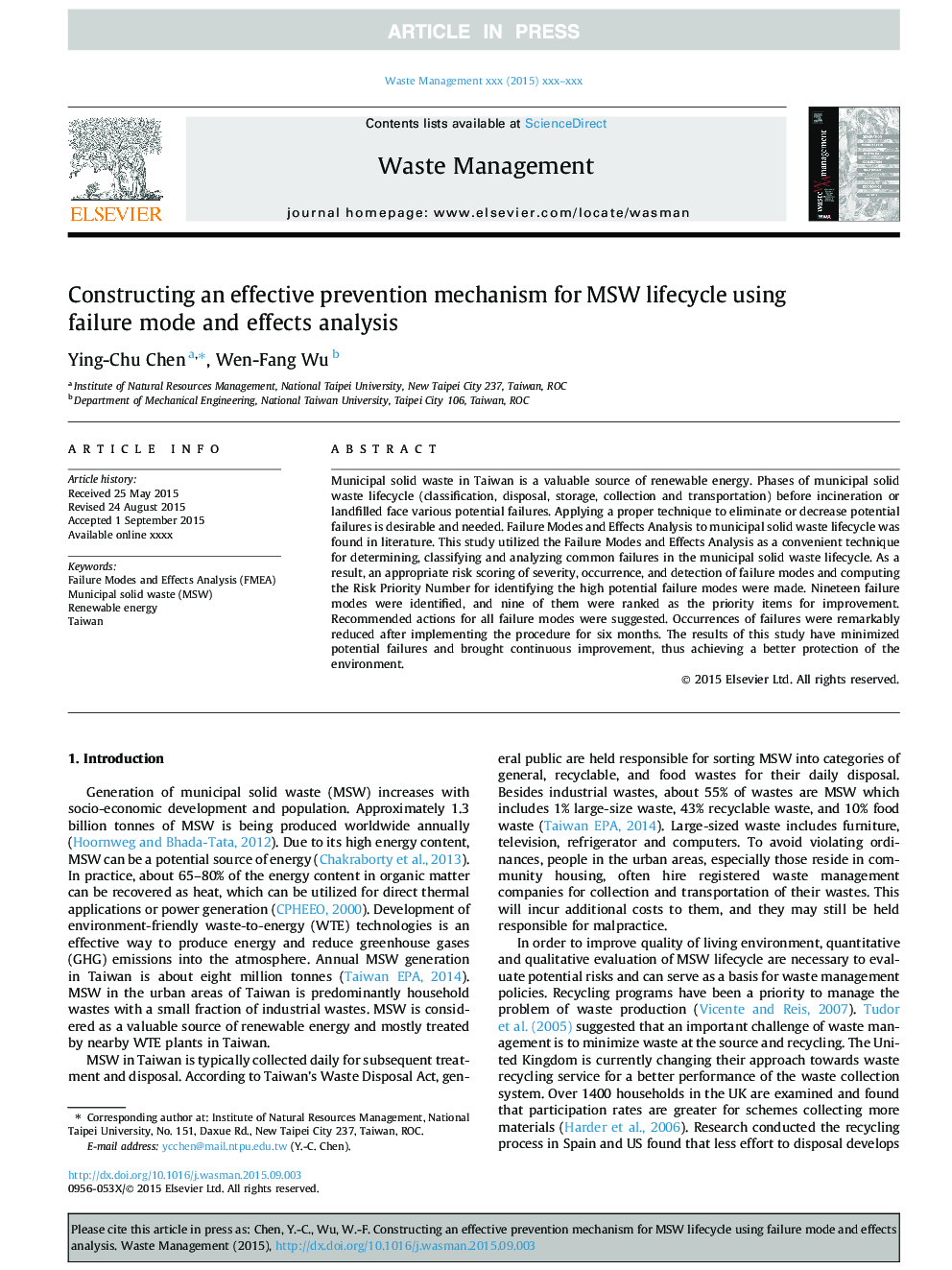| Article ID | Journal | Published Year | Pages | File Type |
|---|---|---|---|---|
| 6354577 | Waste Management | 2015 | 7 Pages |
Abstract
Municipal solid waste in Taiwan is a valuable source of renewable energy. Phases of municipal solid waste lifecycle (classification, disposal, storage, collection and transportation) before incineration or landfilled face various potential failures. Applying a proper technique to eliminate or decrease potential failures is desirable and needed. Failure Modes and Effects Analysis to municipal solid waste lifecycle was found in literature. This study utilized the Failure Modes and Effects Analysis as a convenient technique for determining, classifying and analyzing common failures in the municipal solid waste lifecycle. As a result, an appropriate risk scoring of severity, occurrence, and detection of failure modes and computing the Risk Priority Number for identifying the high potential failure modes were made. Nineteen failure modes were identified, and nine of them were ranked as the priority items for improvement. Recommended actions for all failure modes were suggested. Occurrences of failures were remarkably reduced after implementing the procedure for six months. The results of this study have minimized potential failures and brought continuous improvement, thus achieving a better protection of the environment.
Related Topics
Physical Sciences and Engineering
Earth and Planetary Sciences
Geotechnical Engineering and Engineering Geology
Authors
Ying-Chu Chen, Wen-Fang Wu,
